Digital Detox: 10 Ways to Boost Focus and Score Better in Studies
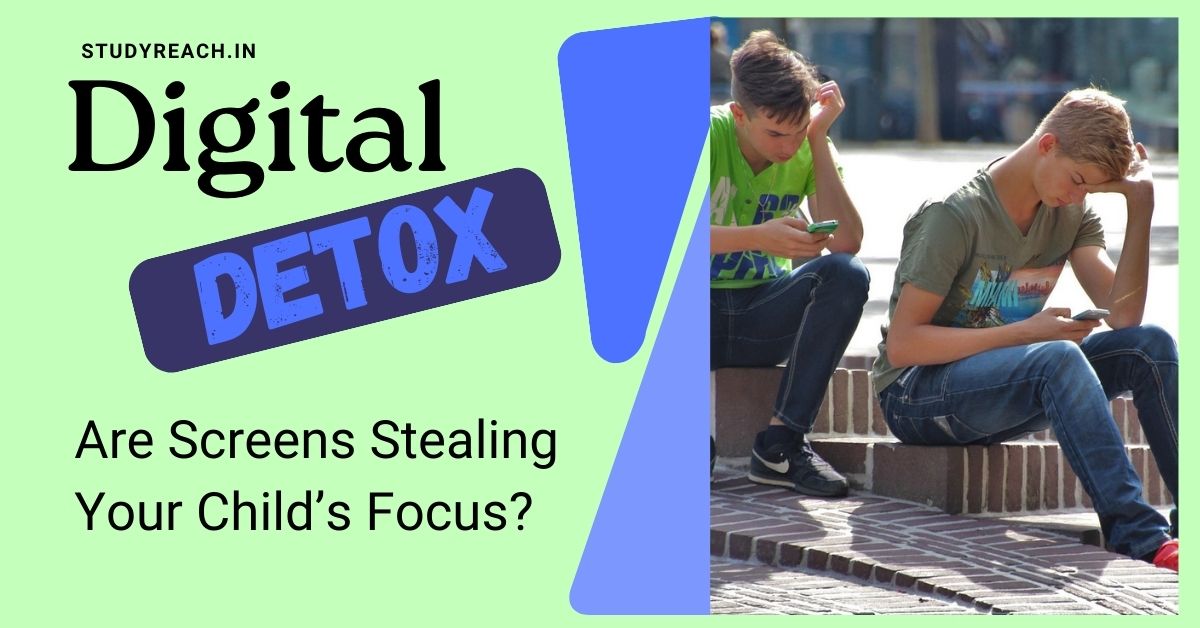
Introduction: Are Screens Stealing Your Child’s Focus?
What Is Digital Detox?
Think of it as a small break from screens—like giving your mind a mini-vacation.
A Digital Detox means reducing the use of devices like phones, tablets, laptops, etc., for a certain period. It doesn’t mean quitting technology—it means using it smartly.
Rahul, a college student, stopped using his phone on weekends. He revised notes, played football, and slept better. His grades improved—and so did his smile! You can also grade good rank.
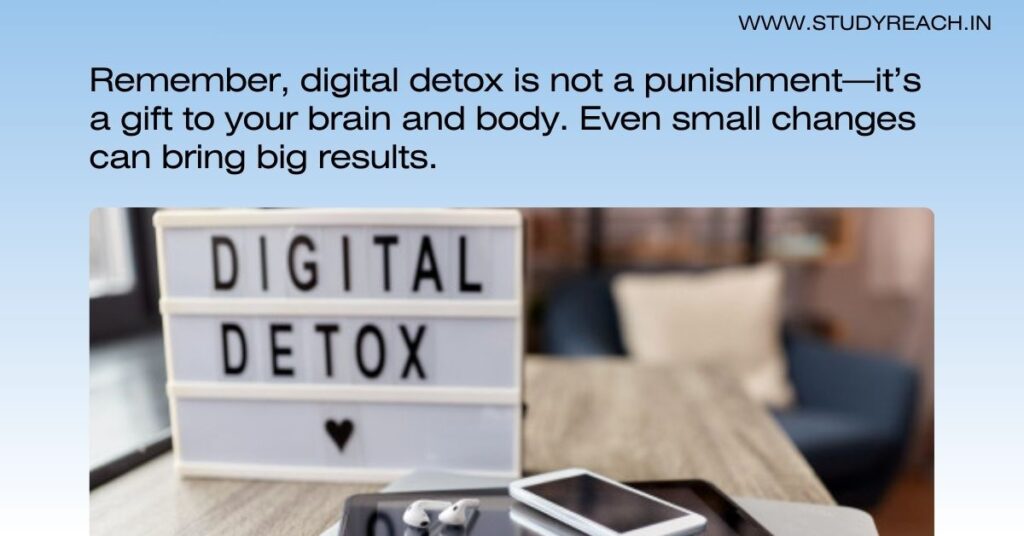
Dear parents and students,
Let me ask you something simple—can you study for 30 minutes without checking your phone?
If the answer is “no,” then you’re not alone. In today’s digital world, students are spending hours on mobiles, tabs, laptops—for studies, yes, but also for gaming, reels, and chatting. The result? Less focus, poor sleep, falling grades, and a brain that feels tired all the time.
But don’t worry—we’re not here to say “throw away the phone.” We’re here to talk about balance. And that’s what a Digital Detox is all about.
Why Is Too Much Screen Time Harmful?
Let’s break it down. Too much screen time can cause:
- Less Focus: Constant pings distract you. You lose track of what you’re reading or solving.
- Example: You couldn’t finish homework due to YouTube alerts. After using “Do Not Disturb” mode, you will work faster!
- Poor Sleep: Blue light from screens confuses your brain and delays sleep.
- Fact: Just 30 minutes of screen use before bed can delay sleep by 2 hours!
- Mental Stress: More screen time = more anxiety, comparison, and stress.
- You just left Instagram for a month. You will be happier, lighter, and more confident.
- Physical Problems: Eye strain, headaches, backaches—your body suffers too.
What Happens When You Cut Screen Time?
Here’s the good news. When you cut down screen time:
You Focus Better
The movement you will keep your phone away while studying. Result? You will finish homework faster and scored higher in tests.
You Sleep Peacefully
Sharma family followed a “no screens after 9 PM” rule. They all felt fresher in the morning!
You Talk More, Laugh More
A group of college friends started “device-free dinners.” They felt more connected and enjoyed real conversations.
You Manage Time Like a Pro
Use a paper planner instead of your phone. You will meet the deadlines and still will have free time to relax.
5 Signs Your Child Needs a Digital Detox
Parents, observe these red flags:
- Difficulty in focusing on studies
- Always irritated when asked to stop using devices
- Ignoring homework and chores
- Complaining of headaches or tired eyes
- Falling grades or interest in school
Let’s understand with example : Ajay, a 10th grader, became cranky during study time. His parents added short, screen-free study slots. Within weeks, his interest in studies bounced back.
Simple Strategies for a Digital Detox That Actually Works
Let’s not make it boring—detox can be fun too!
Set “No-Phone Zones”
The Mehta family banned phones at the dining table. Result? Healthier meals and happier chats.
Fix “Tech-Free Hours”
After school, 1 hour outdoors. Rohan took up cycling—got fitter and happier.
Discover New Hobbies
Kavya tried baking during her detox. Now she’s the family’s favorite chef!
Lead by Example
Parents, when you reduce your screen time, your kids will follow. Be the role model.
How Parents Can Support This Detox Journey
You don’t need to be strict. You just need to be smart.
Talk Openly:
Explain why less screen time is good—with real stories and simple words.
Do Activities Together:
One mother-daughter pair started yoga classes—less screen time, more bonding.
Celebrate Progress:
Completed one full week of detox? Reward with a fun outing or movie night (maybe on a big screen this time).
“The Impact of Excessive Screen Time” section:
According to Dr. Clifford Sussman in this TEDx Talk, too much screen time alters the brain’s reward system and can cause emotional and academic issues in children.
Real Data: What Indian Studies Say About Screen Time and Children
In a recent article published by Dainik Bhaskar, a concerning study highlights that children below 2 years in India are spending an average of 1.2 hours per day on screens—double the amount recommended by health experts.
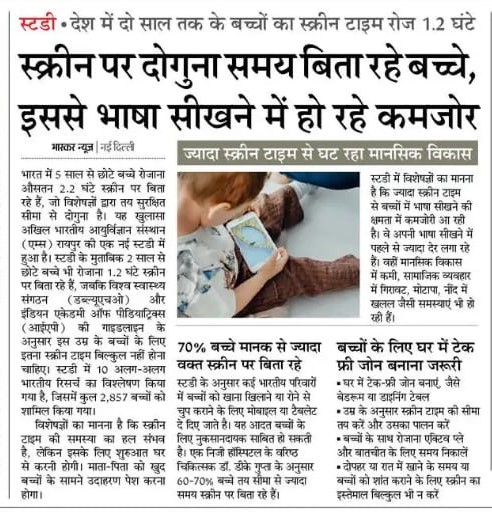
The research reveals that excessive screen time is directly linked to delayed language development and reduced social interaction in toddlers. Mental development is also being negatively impacted, especially in early learning stages.
What to know from Study:
- Children using screens for over 2 hours daily show slower brain growth and weaker language learning.
- Around 70% of children under 5 years are exceeding healthy screen time limits.
Real Success Stories to Inspire You
Anirudh, an engineering student, gave up YouTube for 1 hour daily. He scored 15% higher in his semester exams!
Aisha, a school student, reduced social media time. Her teachers noticed improved focus, and she became the class topper!
Final Words: Ready to Start Your Digital Detox?
Remember, digital detox is not a punishment—it’s a gift to your brain and body. Even small changes can bring big results.
Whether you’re a student or a parent, try this for 7 days. Reduce your screen time by just 1 hour a day. Read a book, go for a walk, talk to your parents, draw something. You’ll feel the difference—guaranteed!
Related Article
Parents can read this practical guide Mayo Clinic article explains the physical and mental health effects of too much screen time in children and to to learn how to talk to children about screen limits and create healthy habits.




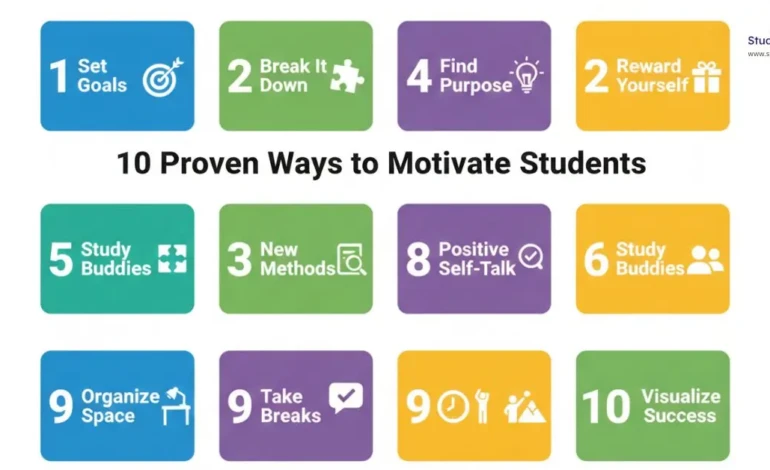


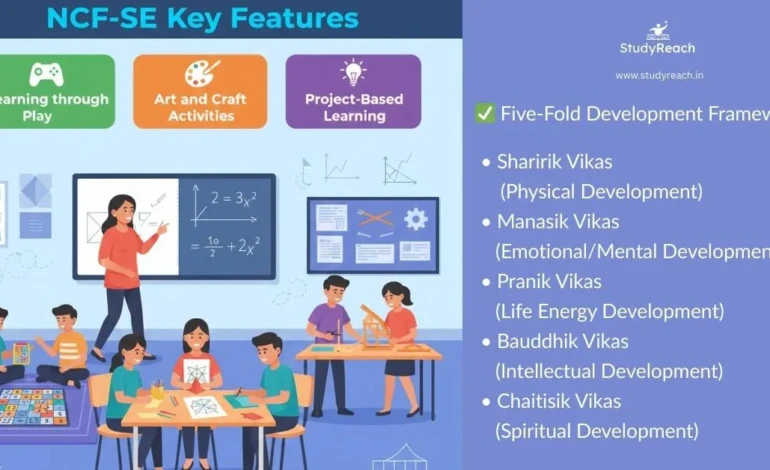

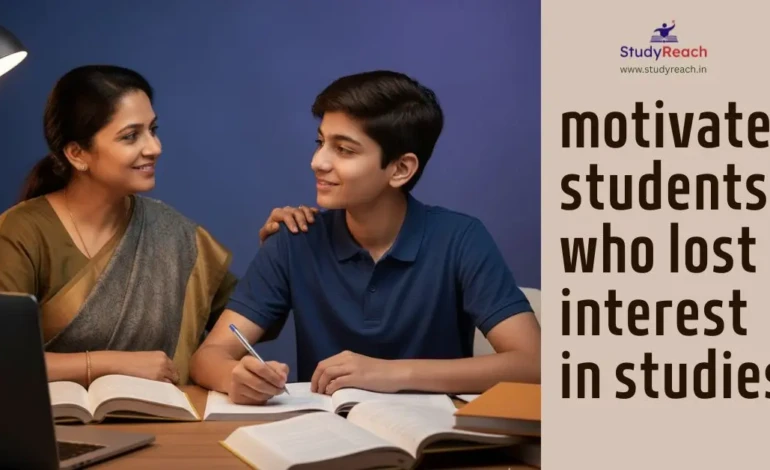

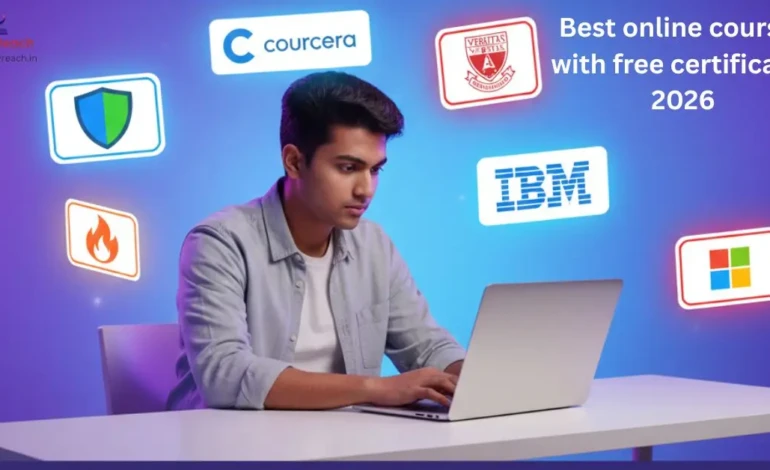
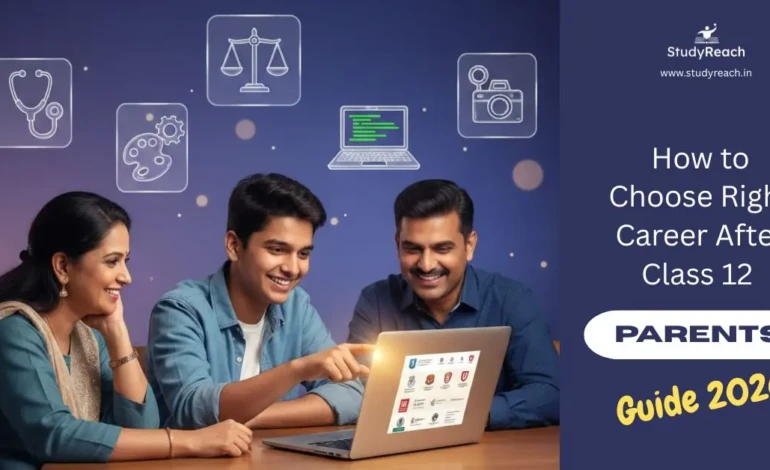




1 Comment
[…] Digital Detox: 10 Ways to Boost Focus and Score Better in Studies […]